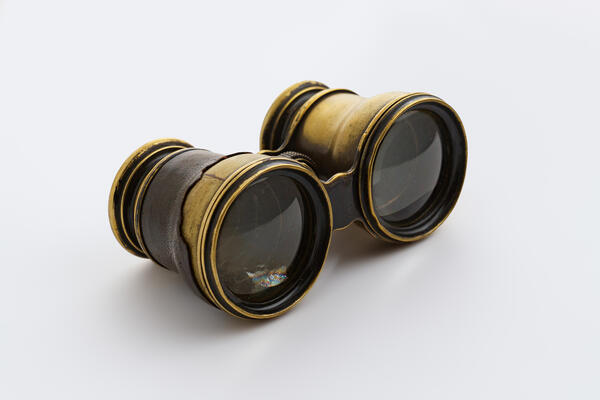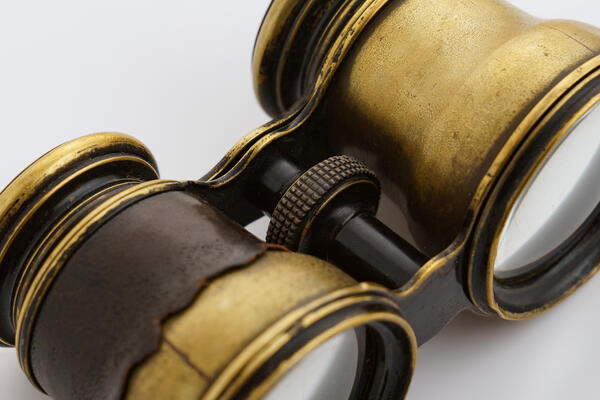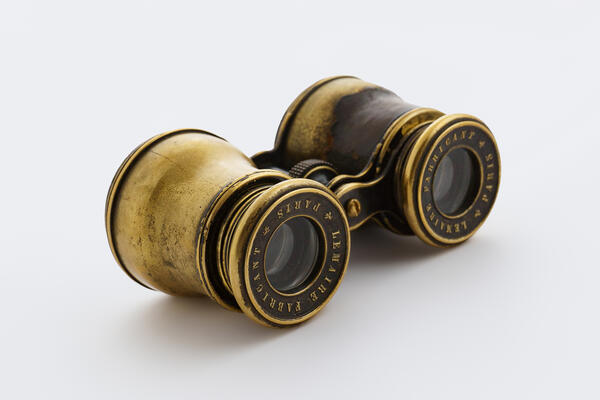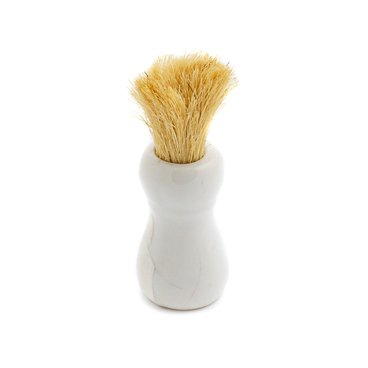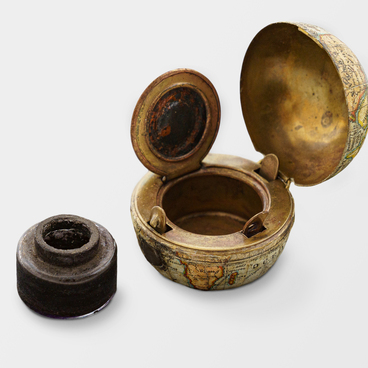The
theater binoculars from an apartment in Nashchokinsky lane belonged to Mikhail
Bulgakov. The writer found various uses for it. The writer’s third wife, Yelena
Sergeevna, wrote in her diary,
Mikhail Bulgakov’s theater binoculars
M. A. often stayed in his room, watched the moon through binoculars — for the novel. It is now a full moon.
But most often Bulgakov used these binoculars when going to the theater and opera, and it happened regularly. Bulgakov was surrounded by music from childhood: his mother Varvara Mikhailovna played the piano, his father Afanasy Ivanovich played the violin, and Bulgakov’s brothers and sisters organized a home choir. In those days, the future writer dreamed of a career as an opera singer. Bulgakov’s sister Nadezhda recalled,
He, a gymnasium student, had on his desk a photograph of Lev Sibiryakov, an opera singer of the Kiev Opera, with an inscription, which my brother proudly gave me to read, ‘Dreams sometimes turn into reality’.
Bulgakov’s other sister, Vera, calculated that in his youth he went to the “Faust” opera forty-one times. Bulgakov loved to hum arias from “Faust”, “The Barber of Seville” and “Aida”. No wonder that his works are unusually rich in all kinds of music — from classical opera to jaunty ditties. The writer Valentin Kataev, who was a friend of Bulgakov in the 1920s, wrote about him in his autobiographical novel “My Crown of Diamonds” (in the text he is given the pseudonym “blue-eyed”):
‘…A Hoffmann of sorts! ’ I said.
‘Not a Hoffmann, but a Pushkin, ’ muttered the blue-eyed man, ‘or rather a Tchaikovsky. ‘Queen of Spades’. The scene at the Swan Groove. ‘Midnight is coming on, and Hermann is still not there…’
He generally had a great love of opera. His favorite one was Faust. He even played a little of the opera’s Mephistopheles when addressing us; sometimes he hummed sadly, ‘I beg you for my sister, ’ which I took to my own account.Mikhail Afanasyevich retained his interest in music even in later years. In the writer’s apartment in Nashchokinsky lane there was a grand piano, which was played not only by the owner, but also by his musical guests, including Isaak Dunaevsky and Dmitri Shostakovich.

